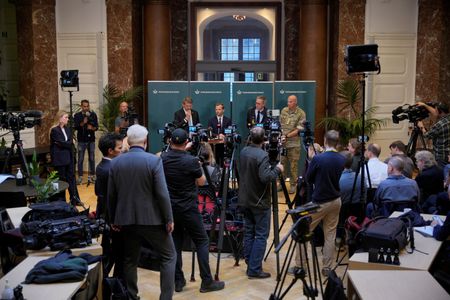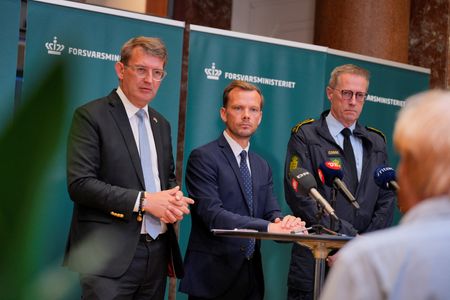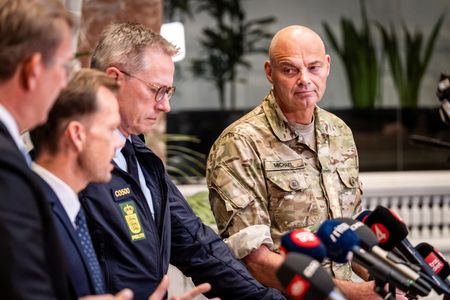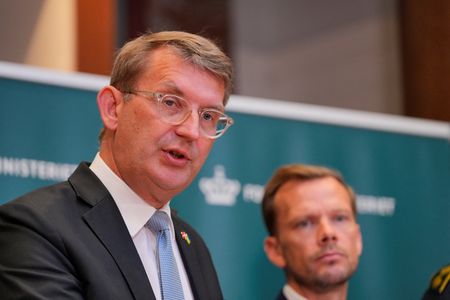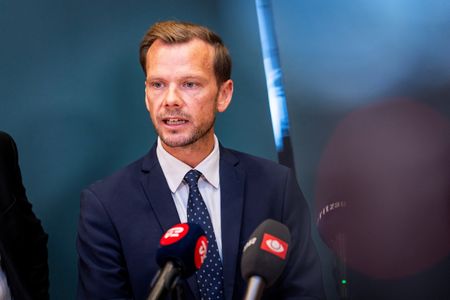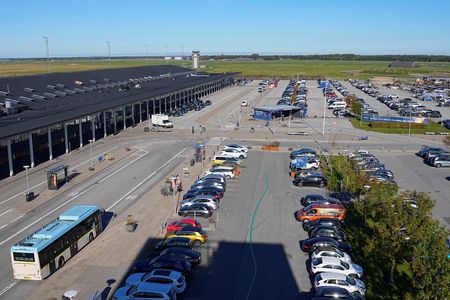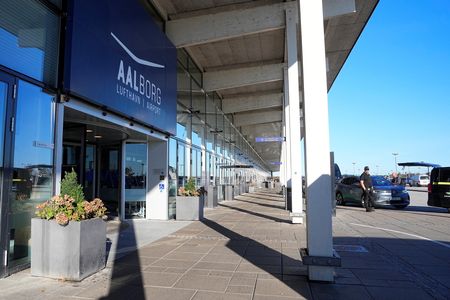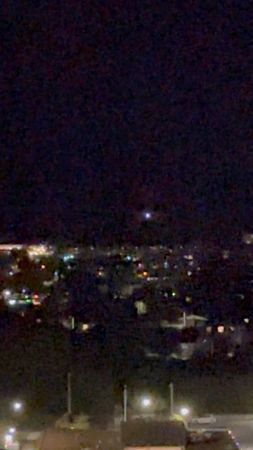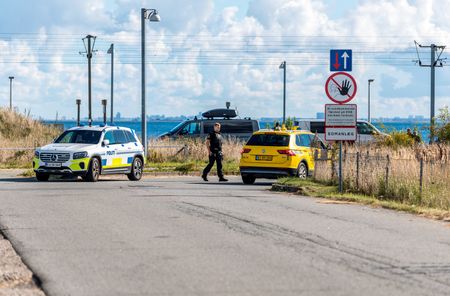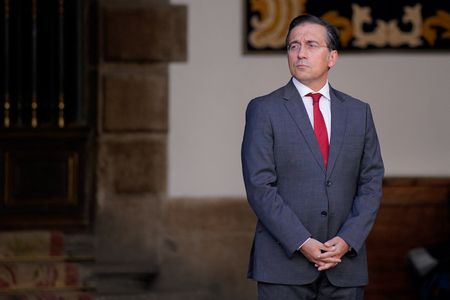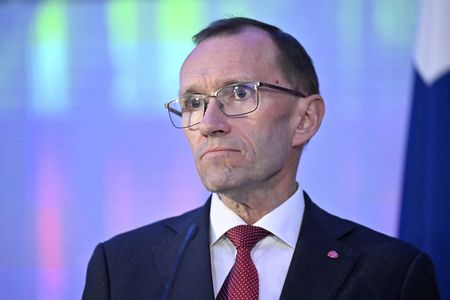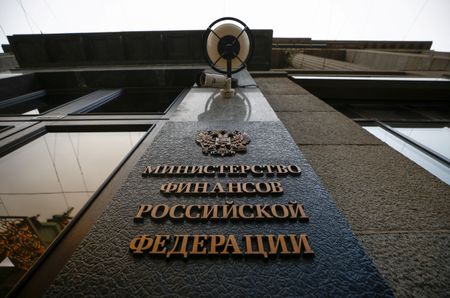COPENHAGEN (Reuters) -Denmark has informed its NATO allies that drone incursions that shut two of its airports are linked to unspecified “state actors”, Latvia’s foreign minister told Reuters on Thursday, adding that the West must invest in anti-drone capabilities.
Denmark’s foreign ministry did not immediately reply to a request for comment. Its defence minister earlier said the overnight drone sorties were hybrid attacks aimed at spreading fear. He did not identify the perpetrators.
The incident, the second in two days in Denmark alone, is part of what some European officials see as a pattern of Russian disruption that has exposed the vulnerability of European airspace at a time of high tensions between Moscow and NATO.
Danish Prime Minister Mette Frederiksen linked a similar incident, which shut Copenhagen airport late on Monday, to suspected Russian drone activities across Europe, without providing evidence.
Russia’s embassy in Copenhagen on Thursday rejected as “absurd” speculation about Moscow’s involvement in the Danish incursions.
NEED TO INVEST IN ‘COUNTER-DRONE CAPABILITY’
“The Danish government said it’s a state activity that operates it,” Latvian Foreign Minister Baiba Braze told Reuters, referring to the overnight drone forays in Denmark.
“So we will wait for further assessments from our Danish colleagues, but it’s very clear on the allies’ side… we all have to invest in counter-drone capability,” she said, speaking on the sidelines of the U.N. General Assembly in New York.
The incursions forced Aalborg airport, used for commercial and military flights, to shut for three hours, while Billund airport, Denmark’s second-largest, was closed for an hour, police said. Both reopened on Thursday morning.
Drones were also seen near Esbjerg and Sonderborg airports, as well as Skrydstrup airbase, home to Denmark’s F-16 and F-35 fighter jets, and over a military facility in Holstebro, police confirmed. They are all located in the western Jutland region.
Civil rescue company Esvagt told Reuters its vessels had observed late on Wednesday what appeared to be drones flying over the North Sea. Local police received a report about drones near North Sea oil fields, state broadcaster DR reported.
“This shows at least that we do not have the capacity at present to prevent the intrusion of drones over our airports,” said Peter Viggo Jakobsen, an associate professor at the Royal Danish Defence College. “This is a hole in our preparedness.”
Danish police said they had increased their presence at the impacted airports and other critical infrastructure.
The incursions come after Denmark this year boosted its military budget to address acute shortcomings. Last week, it announced plans to acquire long-range precision weapons, while its decision to host Ukrainian missile fuel production near the Skrydstrup airbase has drawn criticism from Russia.
SORTIES SEEM ‘SYSTEMATIC’, SAYS DEFENCE MINISTER
Poland shot down suspected Russian drones in its airspace on September 10. Danish authorities said on Thursday they decided not to take down any of the drones in their airspace for safety reasons, despite the disruption caused to air traffic.
“It certainly does not look like a coincidence. It looks systematic. This is what I would define as a hybrid attack,” Defence Minister Troels Lund Poulsen told a press conference.
Denmark has not yet decided whether to invoke NATO’s Article 4, which allows members to request consultations over any security concerns, Poulsen added. Poland invoked the article after downing the drones, as did Estonia after Russian military jets violated its airspace for 12 minutes on September 19.
Danish opposition lawmaker Pelle Dragsted of the Red-Green Alliance slammed the government’s handling of the incidents, saying on X: “Billions (are being) allocated to defence … But no control over the most basic thing: Defence of our own vulnerable infrastructure.”
Prime Minister Frederiksen called the Copenhagen incident the most serious “attack” yet on Denmark’s critical infrastructure and linked it to suspected Russian drone activities across Europe, though no evidence was provided.
Danish analyst Jakobsen also pointed the finger at Moscow.
“So the Russians – if it’s them, and I think it is – are doing what they’ve been really good at for a long time: they’re going right to the edge of what would trigger a military response from NATO, but not over it,” he said.
(Reporting by Jacob Gronholt-Pedersen, Stine Jacobsen, Maria Laguna, Søren Sirich Jeppesen, Anna Ringström and Terje Solsvik; Additional reporting by John Irish and Gwladys Fouche. Editing by Gareth Jones)

